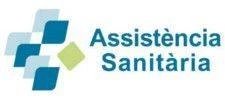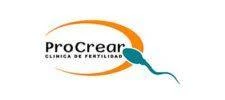- Hace días que me duele la garganta y el médico no me ha querido recetar ningún antibiótico.
- Sí, no me extraña, últimamente sólo recetan paracetamol e ibuprofeno si te duele mucho.
- Pues para eso no hacía falta ir. Me ha dicho que no tengo anginas, que es una faringitis y que es vírica.
- A mi el mes pasado tampoco me lo quiso recetar, y eso que tenía las amígdalas bien grandes, pero como no tenía placas de pus…
- Voy a esperar un día más y si me sigue doliendo me iré a Urgencias.
¿Le suena esta conversación? Frases idénticas o similares forman parte de nuestro día a día e indican que pacientes y médicos no siempre acabamos entendiéndonos. Y no debería ser así.
¿Qué son las faringoamigdalitis? Las faringoamigdalitis son las infecciones agudas de la faringe(faringitis), las amígdalas palatinas (amigdalitis) o ambas. Son, pues, infecciones de la garganta.
En el origen de las faringoamigdalitis existen dos grandes grupos fundamentales, las víricas y las bacterianas. Las primeras pueden estar causadas por múltiples virus y no van a requerir tratamiento antibiótico, tan sólo analgésicos y/o antiinflamatorios, pero en las segundas puede ser que sí, concretamente en las producidas por una bacteria muy frecuente, el estreptococo del grupo A, causante de las faringoamigdalitis con puntos o placas de pus en la garganta, aunque no siempre se presenta así. En este caso sí debe tratarse con antibiótico durante el tiempo necesario hasta su erradicación de la garganta (unos 10 días) pues si no se trata podrían aparecer complicaciones mucho más severas, como la fiebre reumática (con afectación destructiva de las válvulas del corazón), afectación del riñón (glomerulonefritis), la escarlatina o el absceso periamigdalino (bolsa de pus alrededor de una amígdala).
En la actualidad tenemos un método muy fiable y rápido para confirmar o descartar una amigdalitis por estreptococo, el TEST DE ANTIGENO ESTREPTOCÓCICO DEL GRUPO A. El test es muy sencillo de realizar, tan sólo tenemos que tomar una muestra con un hisopo (similar a los palitos para limpiar oídos) frotando suavemente i después colocarlo en un pequeño tubo donde hemos puesto previamente unos reactivos. Si hemos recogido estreptococos de la garganta en tan sólo 5 minutos dará un resultado positivo en un 97% de los casos (sensibilidad) y si no un resultado negativo. Los casos positivos los trataremos con antibióticos.
Las guías actuales cada vez más aconsejan que los médicos seamos muy selectivos a la hora de usar los antibióticos, reservándolos sólo para los casos estrictamente necesarios. El mal uso de ellos provocará en los pacientes la pérdida de las bacterias saprófitas (bacterias que viven en nosotros y nos ayudan) y una bajada de defensas, con la aparición de nuevas infecciones en las que no actúan los antibióticos, como las producidas por virus, hongos u otras bacterias que ya se han vuelto resistentes a ellos.





































































